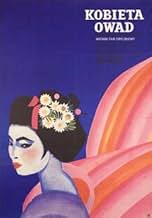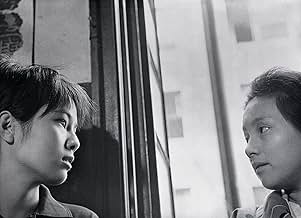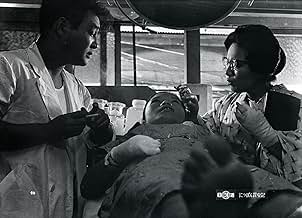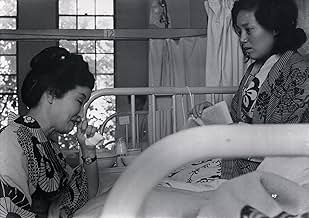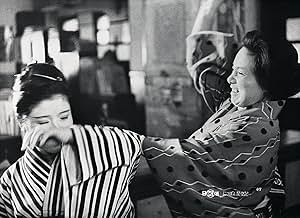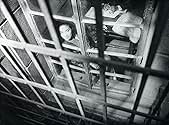Viewed on DVD. No, this is not a horror movie; just a horrible movie! Director Shôhei Imamura again documents his obsession with the sex lives of those at the bottom of Japan's social-economic food chain. In doing so, he promotes several old/new stereotypes: sex workers as role models for survival (a riff on prostitutes with hearts of gold?); the poor and ignorant being no better than insects; migrants from rural to urban environments cause big-city degeneracy because they bring it with them; etc. Pushing the boundaries of contemporary censorship (that would all but evaporate in a few years), Imamura tries his hand (and hopes to broaden his film's paying audience?) at soft porn with: simulated sex (partially hidden with poorly lit scenes); strongly-implied sex between daughter and father; adult breast feeding; etc. The film is also loopy: each succeeding generation repeats the same life process; many instances of a Capella singing with nonsense lyrics on the sound track; the opening scenes of an insert struggling to climb an incline and the closing scenes of the heroine struggling to climb a hill; etc. The net result is that the movie goes in a circle and, hence, nowhere (and also seems to stop abruptly). Acting is uneven due to an inferior script (or an over abundance of on-set improvisation?). Line readings range from grunts to micro "proverbs." Cinematography (wide screen, black and white) is hard to judge, since interior scenes are often poorly lit or not lit at all. Editing includes random bouts of freeze framing (often accompanied by comments that may be expository or just nonsense). Film music is somewhat spastic. Translations of line readings are usually close enough. Japanese film making at its worse (or darn close to it!). WILLIAM FLANIGAN, PhD.

